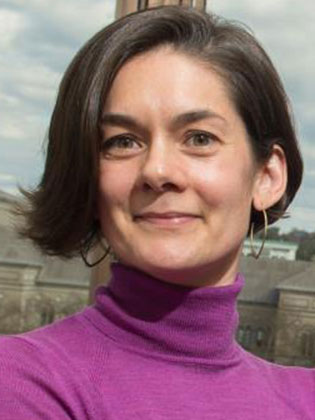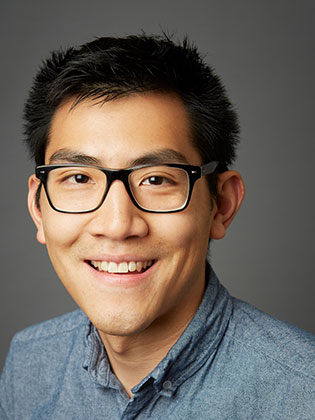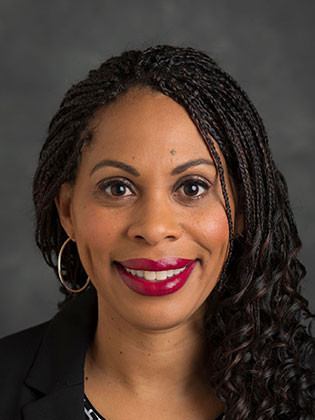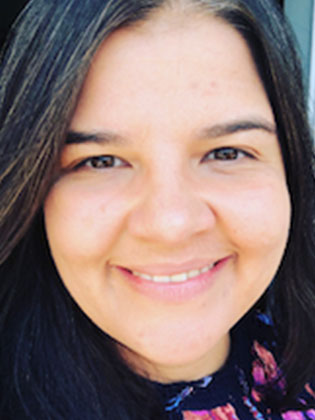
September-October 2020 Newsletter
Insights from JREE: Paper Summaries for the Field
The Society’s Journal, JREE, plays a key role in disseminating causal education research findings. As a scholarly journal, though, the audience for JREE is primarily education researchers. It is an important audience—allowing researchers to inform their work and for the field to build a body of evidence that has undergone peer review. The articles are written to provide all the details another researcher would want to know—and not necessarily for a practitioner, policy-maker, or “research user.”
The JREE Editorial team recognizes that there is another really important audience for the work presented in JREE—practitioners, policy-makers, and “research users.” To make JREE content more accessible to this audience as well as busy researchers, the editors have launched Insights from JREE: Paper Summaries for the Field. These summaries include a link to the full article on the JREE site for individuals who want to dive deeper into the research methods and study design.
Moving forward, authors of accepted papers will be asked to write a one-page summary of their article, following a template for the Paper Summaries collection. The task is not meant to be burdensome, nor do we want it to be a barrier to submission. It is meant to help get the important work of our community into the hands of individuals who need and want it, but are not inclined to read a scholarly article.
The JREE editorial team has asked the recipients of the JREE Outstanding Paper Award to write summaries that authors can use as an example. In addition, the editorial team has invited authors who published in JREE during the past 4 years to submit a summary or allow a graduate student to do so on their behalf.
You can read the first set of summaries here.
Ask Me Anything with Elizabeth Stuart: Effectiveness Research at the Interface of Education and Public Health, October 30, Noon EDT
 Hosted by SREE Board member, James Kim, Harvard University, the purpose of the Ask Me Anything hour is to provide an informal opportunity for SREE members to be able to have the kind of conversations that might have taken place at the annual spring conference over lunch, after a session, or at a reception. This month, Kim will be joined by SREE Board Member Elizabeth Stuart, Johns Hopkins School of Public Health, to address questions about research at the intersection of education and public health—an area of obvious particular interest at this time! Registration is open to SREE members and is limited to 25 individuals per session. Register here. Hosted by SREE Board member, James Kim, Harvard University, the purpose of the Ask Me Anything hour is to provide an informal opportunity for SREE members to be able to have the kind of conversations that might have taken place at the annual spring conference over lunch, after a session, or at a reception. This month, Kim will be joined by SREE Board Member Elizabeth Stuart, Johns Hopkins School of Public Health, to address questions about research at the intersection of education and public health—an area of obvious particular interest at this time! Registration is open to SREE members and is limited to 25 individuals per session. Register here.
Nominate an Outstanding Scholar for the SREE Early Career Award
Do you know an early career researcher whose work and contributions to the field really stand out? Nominate him/her for the SREE Early Career Award. This award, in its third year, recognizes individual(s) whose work has advanced rigorous research relevant to educational practice. The honoree(s) will be recognized at the SREE 2021 Conference. All SREE members are encouraged to nominate deserving candidates. Self-nominations are also welcome. The nomination deadline is November 15, 2020.
Learn more about the award and the nomination requirements here.
SREE Members Share Their Pandemic-Related Research
We requested, and you responded! Learn about some of our community’s research on cognition, distance learning, and educational technology that is relevant in this time of remote learning.
Hear what James Paul and Patrick J. Wolf, University of Arkansas, have to say about their research on distance learning:
“[We have been] working on an evaluation of a single, anonymous virtual charter school. We control for baseline achievement, student mobility, and other demographic factors to estimate the effects of virtual schooling on achievement in ELA and math. Although most existing literature suggests virtual schools are associated with negative achievement, we estimate that virtual students demonstrate similar gains in ELA relative to a matched comparison group in other public schools. Our estimates in math suggest moderately negative effects of the virtual school. We argue these findings, which are less negative than those reported in previous virtual schooling evaluations, are more reliable indicators of the independent effect of virtual schooling on student achievement because we match on student mobility, which is a proxy for otherwise unobservable negative selection factors.”
Jennifer Hamilton, NORC at the University of Chicago, shared two projects from their education division:
(1) an NSF RAPID grant to measure the pandemic learning loss in high school students, and
(2) an impact evaluation of high dose virtual tutoring for high school students.
W. Steven Barnett, Rutgers University, and others “surveyed a national sample regarding preschool education and home learning environments after most programs closed in March.” The following July 2020 study reports are also available from nieer.org:
(1) Understanding and responding to the pandemic’s impacts on preschool education: What can we learn from last spring? – NIEER Special Report
(2) Young Children’s Home Learning and Preschool Participation Experiences During the Pandemic – NIEER Technical Report
(3) 2020 Home Learning Study – NIEER Methodology Statement
Research Methods Webinar Recordings Now Available
The research methods webinars held in July 2020 are now available on the SREE website.
Proposing Cost and Cost-Effectiveness Analyses
Presenter: Brooks Bowden, University of Pennsylvania
This short session provides guidance and tips for those applying for IES research grants. The session is tailored to the current IES RFA goal/research structure.
Bayesian Interpretation of Impact Estimates from Education Evaluations
Presenters: John Deke and Mariel Finucane, Mathematica
This webinar illustrates the pitfalls of misinterpreting statistical significance in evaluations of education interventions, describes BASIE (BAyeSian Interpretation of Estimates), an evidence-based alternative to p-values that assesses the probability an intervention had a meaningful
effect, and provides examples of BASIE in action, including a simple spreadsheet tool.
Members in the News
 SREE Board Member, Lindsay Page of the University of Pittsburgh, has received the 2020 Early Career Award from the American Educational Research Association. The award recognizes a scholar who has conducted a distinguished program of cumulative educational research in any field of educational inquiry within the first decade following receipt of their doctoral degree. Page's research contributions to "1) improving college access and success for students living in underserved areas, 2) examination of school district policy and practice, and 3) using principal stratification to inform policy research" were cited in the award announcement. Page earned her Ed.D. in Quantitative Policy Analysis in Education from the Harvard Graduate School of Education in 2011. SREE Board Member, Lindsay Page of the University of Pittsburgh, has received the 2020 Early Career Award from the American Educational Research Association. The award recognizes a scholar who has conducted a distinguished program of cumulative educational research in any field of educational inquiry within the first decade following receipt of their doctoral degree. Page's research contributions to "1) improving college access and success for students living in underserved areas, 2) examination of school district policy and practice, and 3) using principal stratification to inform policy research" were cited in the award announcement. Page earned her Ed.D. in Quantitative Policy Analysis in Education from the Harvard Graduate School of Education in 2011.
Institutional Member Corner: University of Maryland College of Education's New Faculty
The University of Maryland College of Education is pleased to welcome five talented scholars and educators to their faculty. Their new colleagues bring expertise in a wide range of topics, including refugee education, the intersection of racism and sexism in academia, and literacy building - topics that are timeless and timely.
 Jason Chow, Ph.D. Jason Chow, Ph.D.
Assistant Professor
Department: Counseling, Higher Education, and Special Education
Alma Mater: Vanderbilt University
Dr. Chow's research focuses on the co-development of child language and behavior, teacher-child interactions, and supporting educators’ implementation of evidence-based practices. Methodologically, he works to improve and disseminate high-quality and state-of-the-art designs in meta-analysis and adaptive interventions' designs. He is the PI on an IES-funded grant, "Developmental Relations Between Language Ability and Behavior Problems," and also pursues work to identify barriers and factors that facilitate the implementation of evidence-based behavior management practices that support speech-language pathologists and the diverse body of students they serve.
“One of the best parts of my job is the opportunity to teach and mentor future researchers and practitioners. It’s the most engaging and satisfying experience, and I probably learn more from my students than they do from me.”
 Jioni A. Lewis, Ph.D. Jioni A. Lewis, Ph.D.
Associate Professor
Department: Counseling, Higher Education, and Special Education
Alma Mater: University of Illinois at Urbana-Champaign
Dr. Lewis' research examines the influence of discrimination on the mental and physical health of Black, Indigenous, and People of Color (BIPOC). Her work explores the intersection of racism and sexism experienced by Black women, as well as resilience and protective factors, and the influence of subtle forms of racism experienced by BIPOC college students. She has applied intersectionality theory to develop the Gendered Racial Microaggressions Scale, a self-report instrument to measure subtle forms of gendered racism. Dr. Lewis received the Rising Star Early Career Award at the American Psychological Association's National Multicultural Conference and Summit (2019).
“My research, teaching, and advocacy have been grounded in my passion and commitment to social justice and equity. As a counseling psychologist, I am committed to engaging in social justice research that seeks to dismantle systems of oppression and improve the health and well-being of marginalized individuals and communities."
 Jing Liu, Ph.D. Jing Liu, Ph.D.
Assistant Professor
Department: Teaching and Learning, Policy and Leadership
Alma Mater: Stanford University
Dr. Jing Liu's research examines education policy issues including student absenteeism, exclusionary discipline, educator’s labor market, and school reform, grounded in a framework of economic theory and policy analysis. In his recent project, entitled, “From Referrals to Suspensions: Unpacking the Origins of Racial Disparities in Exclusionary Discipline," Dr. Liu is trying to uncover when, how, and why racial bias emerges in the entire process of exclusionary discipline.
“I am passionate about this line of work because of my years of experience working with local school districts and seeing how high-quality evidence can make a huge difference in education leaders' decision-making and practices. My interest in using cutting-edge quantitative methods including data sciences comes from my training and exposure in a highly interdisciplinary environment.”
 Sophia Rodriguez, Ph.D. Sophia Rodriguez, Ph.D.
Assistant Professor
Department: Teaching and Learning, Policy and Leadership
Alma Mater: Loyola University Chicago
Dr. Rodriguez has taught middle and high school in New York City and Chicago public schools. Her research interests include education policy and reform, racial and ethnic identity formation in schools, and immigrant youth belonging to school and society. Her current grant-funded projects, funded by the Institute for Museum and Library Services and the Spencer and William T. Grant Foundations, focus on the experiences of immigrant youth in K-12 schools, and how educators and school-based mental health professionals can better advocate for immigrant children and families.
“As a teacher and advocate, I witnessed systemic racism and lack of resources in schools and urban communities. I have been committed to improving educational opportunity and access for minoritized populations through community-based partnerships in all of my research studies.”
 Zeena Zakharia, Ed.D. Zeena Zakharia, Ed.D.
Assistant Professor
Department: Counseling, Higher Education, and Special Education
Alma Mater: Columbia University Teachers College
Dr. Zakharia's research examines the interplay of language, conflict, and peacebuilding in education and advances a critical approach to refugee studies in the Middle East. Dr. Zakharia is currently co-PI on a study that investigates partnership arrangements in the global educational response to the Syria refugee crisis. Her work employs a critical, interdisciplinary, and transnational lens to develop nuanced understandings of localized policy issues affecting vulnerable populations and their embeddedness in national and global phenomena.
“I am an interdisciplinary social scientist committed to peace, equity, and social justice in and through education. My scholarly interests are shaped by over two decades of education research, teaching, and school leadership in war-affected contexts.”
Institutional Member Corner: NYU Steinhardt Highlights -Educational Research Awards, Task Force Recommendations, Education Equity in South Africa
Researchers at NYU’s Steinhardt School of Culture, Education, and Human Development have received $8.1 million in funding from the Institute of Education Sciences – the independent research, evaluation and statistics arm of the U.S. Department of Education – to support education research and training. The awards, four in total, were awarded from various grant programs at the Institute’s National Center for Education Research. The grants include: $4.6 million to renew predoctoral program, $2 million to level the playing field for English learners, $1.4 million for research supporting English learners’ literacy, and $1 million to develop new software for education researchers.
Earlier this year, presumptive Democratic presidential nominee Joseph Biden and United States Senator Bernie Sanders announced six task forces to help Biden’s campaign develop a comprehensive policy platform. Hirokazu Yoshikawa, Courtney Sale Ross University Professor of Globalization and Education at NYU Steinhardt and Co-Director of NYU’s Global TIES for Children center, was invited to join the Education Unity Task Force and, along with his fellow task force members, released a set of education policy recommendations. The task force’s recommendations – covering areas from child care, universal preschool, IDEA, Title I, community schools, school finance to racial equity, protecting transgender students’ rights, bilingual education, disrupting the school-to-prison pipeline, and college access and debt relief - are grounded in the members’ support for evidence-based programs and pedagogical approaches to prepare all students for college, career, and to be informed, engaged citizens.
Educational reform activist, Teboho Moja, clinical professor of higher education, was the recipient of the Lifetime Achiever Award from the National Research Foundation, an award given yearly to someone whose work has made international impact by shaping the lives and views of South Africans. “Policy, academics, and activism have been intersecting paths in my career. It is the driving force behind my passion for education," Moja said, reflecting on her career as a champion of educational equity in Post-Apartheid, South Africa. In this video profile, Moja describes her role in the fight for quality education for South Africa’s citizens.
Institutional Member Corner: RAND AEP Scholarship Opportunities
Are you an education researcher? Are you in school to become one?
Are you interested in receiving a small scholarship to conduct your own research using survey data from one of the largest, high-quality data sets of U.S. school leaders and teachers?
RAND Corporation has made scholarships available to support early-career researchers from underrepresented groups or at under-resourced institutions to use American Educator Panels (AEP) data. This effort, funded by the Bill & Melinda Gates Foundation, is intended to build quantitative analytic capacity among a diverse group of researchers and to ensure analyses reflect a wide range of perspectives. AEP Scholars will have opportunities to interact with one another and with RAND researchers as part of a cohort of scholars who are interested in using survey data to address crucial education policy questions.
The RAND AEP team has administered surveys on a wide range of education topics of national import. Past surveys have included topics such as social and emotional learning, COVID-19, disabilities and special education, and planning for postsecondary success. Browse published RAND research that used AEP data. See a partial list of completed AEP surveys in the AEP Data Portal.
The AEP is a unique resource that, among other things, offers:
- High-quality data from scientifically drawn, probability-based samples of teachers and principals to provide nationally representative estimates
- Ability to examine results for subgroups of teachers and principals, such as those in elementary, middle, or high schools, and those serving majorities of low-income or high-income students
- Opportunity to access and share data with the broader research community
More about the AEP Scholarship:
By conducting relevant and timely analyses with AEP data, scholarship recipients will contribute to research that informs policies and practices that benefit all youth.
Scholarships of $5,000 can be used at scholars’ discretion. Potential scholarship uses include purchase of restricted AEP data or other needed resources, such as software.
Application deadline: The second round of applications is due by November 16, 2020. Future rounds may be opened pending availability.
Who should apply:
Early career scholars, current graduate students enrolled in doctoral, professional, or master’s degree programs at U.S.-based colleges or universities, or people awarded a one of these degrees within seven years who also fit at least one of the following criteria:
- From underrepresented groups in higher education (e.g., Black or African American, Latinx, or American Indian students; first-generation college students)
- From under-resourced institutions that may be unable to provide the support needed to access and analyze the data
- From minority-serving institutions
Scholarship recipient responsibilities:
- Recipients will engage in multiple activities throughout the year of award to ensure progress and success. At a minimum, recipients will attend a virtual orientation, submit a research plan for their project, attend virtual check-in meetings with RAND, and present their research at a virtual final convening of scholarship recipients.
Award selection:
- RAND will review applications to determine eligibility and completeness. A group of RAND education researchers and AEP team members will review qualifying applications to select recipients. All applicants will receive email notice of their application status.
Additional details and instructions on how to apply for the scholarship can be found on the AEP website at www.rand.org/aep-scholarship. Please note you will need to register for the AEP Data Portal to access the application.
|